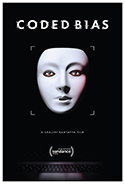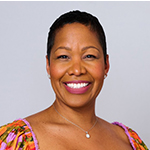FIT Civility Initiative

FIT Civility Week 2023: Civility in the Digital Age
October 10–13, 2023
FIT’s civility initiative is aimed at engaging our community in a discussion of respectful ways of living and learning in a higher education environment. FIT encourages our community to behave with civility. A community upholding civility respects the rights of individuals and groups. It is characterized by understanding and considerations of the differences among members of the community. The diversity of the college adds to the richness of campus life, and FIT expects all members of the community to respect both differences and commonalities.
Tuesday, October 10
Katie Murphy Amphitheatre
Introduction by Deliwe Kekana, Interim Chief Diversity Officer, FIT
Welcome remarks – Dr. Joyce F. Brown, President, FIT
Katie Murphy Amphitheatre
Introduction by Deliwe Kekana, Interim Chief Diversity Officer, FIT
Katie Murphy Amphitheatre
 Dr. Jeffrey Lane is an associate professor of communication at Rutgers University in New Brunswick,
New Jersey. He holds a PhD in sociology from Princeton University. Dr. Lane conducts
ethnographic fieldwork to understand the role of communication and technology in urban
life, youth culture, and the criminal justice system. His current research projects
include a neighborhood study of how residents of the South Bronx use e-bikes to go
about their lives and two collaborative, multimethod, national studies on the mental
health consequences of youth exposure to gun violence on social media and the beliefs
parents and teenagers hold surrounding artificial intelligence (AI).
Dr. Jeffrey Lane is an associate professor of communication at Rutgers University in New Brunswick,
New Jersey. He holds a PhD in sociology from Princeton University. Dr. Lane conducts
ethnographic fieldwork to understand the role of communication and technology in urban
life, youth culture, and the criminal justice system. His current research projects
include a neighborhood study of how residents of the South Bronx use e-bikes to go
about their lives and two collaborative, multimethod, national studies on the mental
health consequences of youth exposure to gun violence on social media and the beliefs
parents and teenagers hold surrounding artificial intelligence (AI).
Dr. Lane is the author of The Digital Street—a book about the digitalization of adolescent street life in Harlem—which won the Nancy Baym Book Award from the Association of Internet Researchers and the Best Book Award from the Communication, Information Technologies, and Media section of the American Sociological Association. He also authored a book on race and masculinity in basketball called Under the Boards: The Cultural Revolution in Basketball.
He is the co-founder and co-chair of the Rutgers Digital Ethnography Working Group, a faculty affiliate of the New Jersey Center on Gun Violence Research at Rutgers University, and a research affiliate of the Center on Digital Culture and Society at Annenberg School for Communication at University of Pennsylvania. His research has been published in peer-reviewed journals such as American Behavioral Scientist, Journal of Computer-Mediated Communication, Journal of Consumer Culture, New Media & Society, and Law & Society Review and written about in popular news outlets like The Atlantic, The New York Times, and New York Magazine.
Stephen Keating, Associate Director/Assistant Professor, Writing & Speaking Studio, FIT
Interpersonal conflict (including differences in opinion, disagreements, and arguments) can arise in any space, including (and sometimes especially) the classroom, and it is important that instructors have tools to navigate these tensions and maintain a civil environment for their students. In an effort to provide instructors with strategies for managing interpersonal conflicts in the classroom, Stephen Keating of the Writing andSpeaking Studio draws from current communication studies research in order to outline our common responses to interpersonal conflict and strategies for engaging in whatnoted communication scholar Julia T. Wood (2020) calls “Constructive Conflict Communication.” At the end of the session, Steve will share recommendations and techniques for how to talk about and employ these strategies in the classroom.
Room E601
Carli Spina, Head of Research & Instructional Services | Associate Professor, Gladys Marcus Library, FIT
Norma Stary, Web Content Coordinator, FIT
One in four U.S. adults – 61 million Americans – have a disability that impacts major life activities. The percentage of U.S. public school students who receive special education or related services has increased over the last decade, to 13% of public school enrollment. Understanding the hows and whys of digital accessibility is the first step in creating an online environment in which everyone has equal access to information and experiences.
We will discuss the meaning of accessibility and why it's an important part of creating an inclusive campus culture. We will also provide some practical ways of making content accessible and point attendees to further resources for training.
Wednesday, October 11
Space is limited and faculty/staff who wish to participate must register by 5 pm on Monday, October 9, 2023.
This is an in-person training, and participants are required to stay for the entire 3 hours.
This training includes:
- Opportunity for participants to reflect on their earliest messages regarding the LGBTQ community and where they received these messages
- Terminology review
- Understanding of what it means to identify as gender queer/nonconforming or a transgender person
- What it means to “come out”
- Best practices for being an ally to LGBTQ students/peers and ways to make your classroom/office more inclusive.
Those who complete this training will receive a "Safe Zone" symbol to display in their office. This symbol indicates that you are an ally who has been properly trained on LGBTQ+ issues, terminology, and ways to support those in need.
For any questions, please contact: [email protected]
John E. Reeves Great Hall
CJ Yeh, FIT Chair, Creative Technology & Design Curriculum Co-Chair, Advertising & Digital Design BFA Curriculum Founder and Executive Director, Cynda Media Lab
Christie Shin, FIT Associate Professor, Founding Member, Educator Advisory Board at Figma, Partner / Design Director, Cynda Media Lab
Estela Lugo, Program Development Manager Hereditary Neuropathy Foundation
Civility is a critical part of inclusive design. By treating people with various disabilities with civility, designers can help to create a more open, welcoming, and inclusive society where everyone can participate fully. This panel discussion will explore the creative process of inclusive design, with a focus on how to address health disparities, advocate for accessibility, and foster collaboration.
Thursday, October 12
Haft Theatre
Haft Theatre
Professor Subhalakshmi Gooptu, Assistant Professor English and Communication Studies, FIT
 When MIT Media Lab researcher Joy Buolamwini discovers that facial recognition does
not see dark-skinned faces accurately, she embarks on a journey to push for the first-ever
U.S. legislation against bias in algorithms that impact us all.
When MIT Media Lab researcher Joy Buolamwini discovers that facial recognition does
not see dark-skinned faces accurately, she embarks on a journey to push for the first-ever
U.S. legislation against bias in algorithms that impact us all.
For more info about the film, visit imdb.com.
Katie Murphy Amphitheatre
Nicole F. Ndzibah, Executive Director, Social Justice Center at FIT
 Jasmine Bellamy is a love practitioner, joyful disruptor, and a business and culture transformer
who was named Sports Illustrated’s Top 100 Influential Black Women in Sports. Jasmine
is the Vice President of Merchandising, Planning, & Allocation at Reebok, the head
of Community & Culture, and the creator and co-facilitator of Courageous Conversations,
a platform that inspires communal transformation.
Jasmine Bellamy is a love practitioner, joyful disruptor, and a business and culture transformer
who was named Sports Illustrated’s Top 100 Influential Black Women in Sports. Jasmine
is the Vice President of Merchandising, Planning, & Allocation at Reebok, the head
of Community & Culture, and the creator and co-facilitator of Courageous Conversations,
a platform that inspires communal transformation.
Jasmine earned a BS in Marketing Management from Syracuse University, Master of Business Administration from Fordham University, and Master of Arts in Theology from Fuller Seminary where she is pursuing a Doctorate in Global Leadership focusing on the Redemptive Imagination of the Marketplace.
Dubinsky 8th Floor Alcove
Taur Orange, Director Office of Educational Opportunity Programs, FIT
Frank Fraley, Adjunct Professor, Jewelry Design, FIT
Ramona Dunlap, Assistant Professor, Fashion Business Management, FIT
Rukaiah El, Fine Arts ’24, FIT
Kailee Finn
Ernesto Martinez
During the Civil War draft riots of 1863 in New York City, the bloodiest civil disturbance in the history of the United States of America, a Black man named Abraham Franklin was pulled from his home on Seventh Avenue and 27th Street and lynched by a mob. Lynching is seen as a Southern phenomenon, but it happened here too. What is the best way to commemorate this horrific event? How can we create a campus-wide discussion, in person and on social media, about creating a memorial? Join us for a preliminary discussion about what to do.
Friday, October 13

God’s Love We Deliver cooks and home-delivers nutritious, medically tailored meals for people too sick to shop or cook for themselves. To support the health of our clients, they also provide ongoing nutrition assessment, education, and counseling. God’s Love is a nonsectarian organization serving people in need and their children and caregivers. All of their services are provided free to clients.
Each volunteer must create an individual account through the following link and be registered for the shift at least one week before the shift to ensure entry to the building on the delivery day: God's Love We Deliver (volunteerhub.com)
Volunteers have up until one week before the shift to claim a reserved spot. Any unclaimed reserved spots will be given back to the general public one week before the shift.
Fashion Institute of Technology at God's Love We Deliver -- details:
- Friday, October 13, 2023
- 9 am - 12 noon kitchen projects: 15 volunteers
- 1 pm - 4 pm kitchen projects: 15 volunteers
All volunteers should arrive 15 minutes prior to their shift for check-in and orientation.
Josephine Jee, Assistant Professor / Counselor Career and Internship Services, Adjunct Instructor Footwear and Accessories Design, FIT
Cyberbullying is becoming increasingly pervasive, affecting teenagers and college students worldwide. According to research, due to increased screen time, approximately half of U.S. teens have experienced digital bullying and harassment online (Watson, 2020). In addition, cyberbullying can be difficult to identify because it often goes unnoticed. It overwhelms teenagers and young adults with anxiety, especially when they lack a support system (Manuel, 2023).
This workshop aims to raise awareness of cyberbullying by facilitating a collective conversation. It is open to students, faculty, staff, and administrators who have experienced it firsthand or helped someone who was subjected to it, and anyone interested in learning more about the incidence and effects of cyberbullying.
Gloria Waitt, Assistant Professor, Counselor, Counseling Center, FIT
Jennifer Stachacz, Assistant Professor, Counselor, Counseling Center, FIT
The goal of this discussion is to empower students to stay true to their values, expectations, and needs within sexual encounters as well as building respect for others, promoting equality and raising the bar for sexual conduct. As most sex education tends to focus on “safe sex,” medical risks, consent, and what to do in case of sexual assault, there is often a missing dialogue around intimacy, love, relationships, and mutual respect and pleasure. Clear communication is key when it comes to the expectations and boundaries of sexual encounters. A discussion group can be an effective tool in facilitating such dialogue in a safe space.
Room D207
 When MIT Media Lab researcher Joy Buolamwini discovers that facial recognition does
not see dark-skinned faces accurately, she embarks on a journey to push for the first-ever
U.S. legislation against bias in algorithms that impact us all.
When MIT Media Lab researcher Joy Buolamwini discovers that facial recognition does
not see dark-skinned faces accurately, she embarks on a journey to push for the first-ever
U.S. legislation against bias in algorithms that impact us all.
For more info about the film, visit imdb.com.
Previous Civility Week Activities
FIT Civility Week 2022: Social Justice, October 11–14, 2022